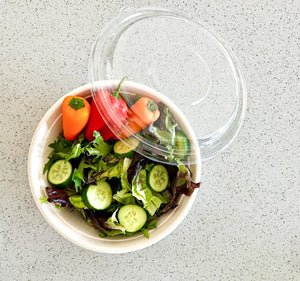
What has carbon emissions got to do with a cashew tree growing in Africa?
Plenty! That one single cashew tree stores carbon and thus removes megatons of greenhouse gases from the atmosphere. Plants use carbon during photosynthesis and molecules of carbon to create their physical structures. It’s estimated that the average dry weight of a tree is about 50% carbon. All living things are made of carbon but trees are carbon storages for their long life-span.
Do you know that a single large tree inhales 20.3 kgs of CO2 in a year and exhales enough oxygen for a family of four for a year?
Trees for the Future, through its Forest Gardens Program have planted millions of trees across Senegal, Kenya, Tanzania, and Uganda and each forest garden has managed to store an average of 62.8 metric tons of carbon.

Aside from the important co-benefit of carbon storage, the Forest Gardens are improving and changing lives by planting fast-growing, soil rebuilding fruit trees that promote the long-term health of the land. They provide income and nutrition, forage and fuel-wood for families and communities to help break the cycle of generational poverty as illustrated in this...
Ousmane Willane’ Story
Ousmane Willane is 50 years old and he lives in the village of Keur Lay Lobe, Senegal. There are nine people in his family alone. His uncle died and Ousmane is now taking care of his uncle’s family as well. So, there are a total of 25 mouths to feed in the household every day. Ousmane went from being a peanut farmer with few options to a forest gardener. Now he grows jujube, cashews, mangoes and wide variety of citrus trees. He has two Forest Gardens under development, one on the small plot of land just behind his family compound. That is where he has the highest value of vegetables and fruit trees. His second Forest Garden covers a two-acre plot. Four years ago, that land was totally bare. Last year he made $1,100 from the same field that struggled to produce $400 in peanuts in previous years. In addition to gardens of beans and hot peppers that grow among the trees, he also grows small plots of peanuts, millet and maize. And with the proceeds of his Forest Garden, he was able to purchase 1 horse, 2 new sheep and a horse cart to transfer products to market.

Element UK
As a responsible business, and like Trees for the Future, Element UK advocates for a reduction in the global carbon footprint, both by providing eco-friendly products and supporting eco-friendly initiatives.
- Here are some facts about Element 100% biodegradable tableware’s carbon footprints:
- The process of making Element is 72% more carbon efficient than traditional plastics. Element is:
- 72% more carbon efficient than when compared to polystyrene;
- 67% more carbon efficient than when compared to polyethylene Terephthalate (PET)
- 55% more carbon efficient than when compared to LDPE
- 52% more carbon efficient than when compared to polypropylene (PP)
- 51% more carbon efficient than when compared to HDPE
- 48% more carbon efficient than when compared to LLDPE
- 1kg of plastic emits 3.4kg of CO2 when incinerated compared to 1.14 kg of CO2 emissions when Element is burnt.
- A food could use 3 times the number of Element tableware as opposed to equivalent plastic products and still have a smaller carbon footprint.
- Since last year, through its commitment to the ‘Trees for the Future’ project, Element has pledged to fund the planting of a tree for every case of Element product sold. Element is delighted to be changing lives while helping to save the planet and has so far sponsored the planting of almost 10,000 trees in Sub-Saharan Africa.






